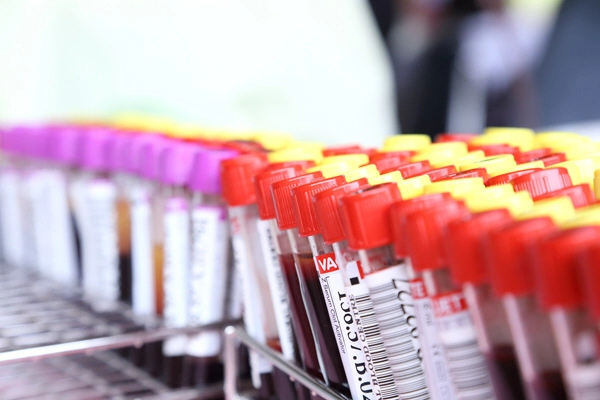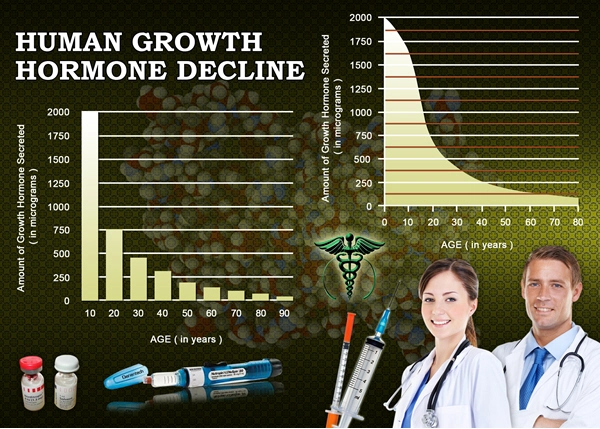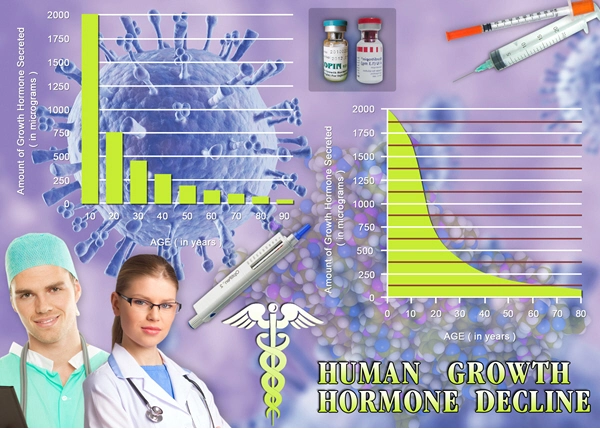Introduction to Premature Ejaculation
Premature ejaculation (PE) is a common sexual dysfunction among American men, characterized by an inability to delay ejaculation during sexual intercourse, often leading to distress and dissatisfaction for both partners. This condition can affect men of all ages and backgrounds, yet it remains shrouded in stigma and misunderstanding. Addressing PE requires a blend of medical knowledge, psychological insight, and practical strategies, which this article aims to explore.
The Prevalence and Impact of Premature Ejaculation
Studies suggest that PE affects approximately 20-30% of men in the United States at some point in their lives. The impact of PE extends beyond the bedroom, influencing self-esteem, relationship dynamics, and overall quality of life. Men with PE often report feelings of inadequacy and anxiety, which can exacerbate the condition, creating a vicious cycle of performance anxiety and rapid ejaculation.
Causes of Premature Ejaculation
The etiology of PE is multifaceted, involving biological, psychological, and relational factors. Biologically, hypersensitivity of the penile nerves, genetic predisposition, and hormonal imbalances can contribute to PE. Psychologically, stress, anxiety, and early sexual experiences can play significant roles. Additionally, relationship issues such as poor communication or unresolved conflicts may manifest as sexual dysfunction.
Diagnosis and Assessment
Diagnosing PE involves a thorough medical history and physical examination to rule out underlying conditions such as thyroid disorders or prostate issues. Clinicians may use the Intravaginal Ejaculatory Latency Time (IELT) to quantify the duration of sexual activity before ejaculation. Psychological assessments can help identify anxiety or other mental health issues contributing to PE.
Treatment Options for Premature Ejaculation
Effective management of PE often requires a multimodal approach. Here are some of the most common treatment strategies:
- **Behavioral Techniques:** The "stop-start" and "squeeze" techniques are behavioral methods that can help men gain better control over their ejaculation. These techniques involve pausing sexual activity or applying pressure to the penis to delay ejaculation.
- **Pharmacological Interventions:** Selective serotonin reuptake inhibitors (SSRIs) such as sertraline and paroxetine are commonly prescribed off-label to delay ejaculation. Topical anesthetics applied to the penis can also reduce sensitivity and prolong sexual activity.
- **Psychotherapy:** Cognitive-behavioral therapy (CBT) can address the psychological aspects of PE, helping men manage anxiety and improve sexual confidence. Couples therapy can also enhance communication and intimacy, reducing the relational strain caused by PE.
- **Lifestyle Modifications:** Regular exercise, a balanced diet, and stress management techniques such as meditation or yoga can improve overall sexual health and potentially alleviate symptoms of PE.
The Role of Partners in Managing Premature Ejaculation
Partners play a crucial role in the management of PE. Open communication about sexual desires and concerns can foster a supportive environment, reducing performance pressure. Couples can explore different sexual positions and techniques that may help prolong intercourse. Mutual understanding and patience are key to overcoming the challenges posed by PE.
Emerging Trends and Future Directions
Research into PE continues to evolve, with new treatments on the horizon. Dapoxetine, a short-acting SSRI specifically designed for PE, has shown promising results in clinical trials. Additionally, ongoing studies are exploring the potential of neuromodulation and other innovative therapies to address the underlying causes of PE.
Conclusion: Embracing a Holistic Approach
Premature ejaculation is a treatable condition that requires a comprehensive approach encompassing medical, psychological, and relational interventions. By understanding the causes and exploring effective treatments, American men can regain control over their sexual health and enhance their overall well-being. Embracing a holistic approach, supported by healthcare professionals and partners, is essential for overcoming the challenges of PE and fostering fulfilling sexual relationships.

- Eclipsing the Quick Fade: An In-depth Analysis of Premature Ejaculation [Last Updated On: February 25th, 2025] [Originally Added On: February 25th, 2025]
- Unlocking the Secrets Of Timing: A Deep-Dive Into The Science Behind Premature Ejaculation [Last Updated On: February 26th, 2025] [Originally Added On: February 26th, 2025]
- Unraveling the Mystery: A Deep Dive into Premature Ejaculation in American Males [Last Updated On: February 27th, 2025] [Originally Added On: February 27th, 2025]
- Unraveling The Enigma: Understanding The Triggers of Premature Ejaculation [Last Updated On: February 27th, 2025] [Originally Added On: February 27th, 2025]
- Unlocking the Mind: Unraveling the Psychological Underpinnings of Premature Ejaculation [Last Updated On: February 28th, 2025] [Originally Added On: February 28th, 2025]
- Understanding and Managing Accelerated Climax: Techniques to Prolong the Intimacy [Last Updated On: February 28th, 2025] [Originally Added On: February 28th, 2025]
- Decoding the Enigma: A Comprehensive Understanding of Premature Ejaculation [Last Updated On: March 1st, 2025] [Originally Added On: March 1st, 2025]
- Mastering intimate moments: A comprehensive outlook on addressing Premature Ejaculation [Last Updated On: March 2nd, 2025] [Originally Added On: March 2nd, 2025]
- Comprehensive Overview of Premature Ejaculation: Understanding Causes, Diagnosis, and Multifaceted Treatment Approaches [Last Updated On: March 3rd, 2025] [Originally Added On: March 3rd, 2025]
- Understanding and Managing Premature Ejaculation: Impacts and Treatments [Last Updated On: March 4th, 2025] [Originally Added On: March 4th, 2025]
- Understanding Premature Ejaculation: Causes, Impact, and Treatment Strategies [Last Updated On: March 5th, 2025] [Originally Added On: March 5th, 2025]
- Understanding and Managing Delayed Ejaculation: Causes, Strategies, and Treatments [Last Updated On: March 6th, 2025] [Originally Added On: March 6th, 2025]
- Mastering the Clock: Hormonal Influences on Ejaculatory Timing and Addressing Premature Ejaculation [Last Updated On: March 6th, 2025] [Originally Added On: March 6th, 2025]
- Understanding and Overcoming Performance Anxiety in Premature Ejaculation: Strategies for Improvement [Last Updated On: March 7th, 2025] [Originally Added On: March 7th, 2025]
- Understanding Premature Ejaculation: Causes, Treatments, and Lifestyle Strategies for Men's Sexual Health [Last Updated On: March 8th, 2025] [Originally Added On: March 8th, 2025]
- Natural Remedies for Premature Ejaculation: Effective Strategies for Delaying Ejaculation and Enhancing Endurance [Last Updated On: March 9th, 2025] [Originally Added On: March 9th, 2025]
- Navigating the Quick Fix Dilemma: Assessing ED Medications for Premature Ejaculation in American Males [Last Updated On: March 14th, 2025] [Originally Added On: March 12th, 2025]
- Understanding Premature Ejaculation: Facts, Myths, and Effective Management Strategies [Last Updated On: March 13th, 2025] [Originally Added On: March 13th, 2025]
- Mastering Your Heartbeat: Techniques for American Men to Gain Control Over Rapid Heart Rhythms [Last Updated On: March 13th, 2025] [Originally Added On: March 13th, 2025]
- Enhancing Intimacy: The Role of Mindfulness in Managing Premature Ejaculation [Last Updated On: March 15th, 2025] [Originally Added On: March 15th, 2025]
- Managing Premature Ejaculation in Casual Relationships: Strategies for American Males [Last Updated On: March 17th, 2025] [Originally Added On: March 17th, 2025]
- Nervous System's Role in Ejaculation and Managing Premature Ejaculation in American Males [Last Updated On: March 17th, 2025] [Originally Added On: March 17th, 2025]
- Countdown Challenge: Exercises to Combat Premature Ejaculation in American Men [Last Updated On: March 18th, 2025] [Originally Added On: March 18th, 2025]
- Anxiety's Role in Premature Ejaculation: Causes and Management Strategies [Last Updated On: March 19th, 2025] [Originally Added On: March 19th, 2025]
- Understanding and Managing Premature Ejaculation: Causes, Treatments, and Holistic Approaches [Last Updated On: March 19th, 2025] [Originally Added On: March 19th, 2025]
- Premature Ejaculation's Broad Impact on American Men's Social and Professional Lives [Last Updated On: March 19th, 2025] [Originally Added On: March 19th, 2025]
- Effective Partner Communication Strategies for Managing Premature Ejaculation in American Males [Last Updated On: March 21st, 2025] [Originally Added On: March 21st, 2025]
- Lifestyle Strategies for American Men to Manage Premature Ejaculation Effectively [Last Updated On: March 21st, 2025] [Originally Added On: March 21st, 2025]
- Understanding and Managing Premature Ejaculation: Strategies for American Males [Last Updated On: March 21st, 2025] [Originally Added On: March 21st, 2025]
- Premature Ejaculation: Causes, Diagnosis, and Effective Treatment Strategies [Last Updated On: March 22nd, 2025] [Originally Added On: March 22nd, 2025]
- Managing Premature Ejaculation: Effective Power of Pause Techniques for American Men [Last Updated On: March 22nd, 2025] [Originally Added On: March 22nd, 2025]
- Managing Premature Ejaculation: A Patient's Journey to Recovery and Hope [Last Updated On: March 22nd, 2025] [Originally Added On: March 22nd, 2025]
- Managing Premature Ejaculation: New Research and Comprehensive Treatment Approaches [Last Updated On: March 22nd, 2025] [Originally Added On: March 22nd, 2025]
- Mastering Premature Ejaculation: Techniques, Treatments, and Lifestyle Strategies for American Males [Last Updated On: March 23rd, 2025] [Originally Added On: March 23rd, 2025]
- Managing Premature Ejaculation: Stress Reduction Techniques for American Males [Last Updated On: March 23rd, 2025] [Originally Added On: March 23rd, 2025]
- Understanding and Managing Premature Ejaculation: Physiological, Psychological, and Therapeutic Approaches [Last Updated On: March 23rd, 2025] [Originally Added On: March 23rd, 2025]
- Premature Ejaculation: Emotional, Financial Impacts and the Need for Comprehensive Support [Last Updated On: March 23rd, 2025] [Originally Added On: March 23rd, 2025]
- Effective Non-Pharmacological Strategies for Managing Premature Ejaculation in American Men [Last Updated On: March 23rd, 2025] [Originally Added On: March 23rd, 2025]
- Psychological Strategies to Manage Premature Ejaculation in American Men [Last Updated On: March 23rd, 2025] [Originally Added On: March 23rd, 2025]
- Cognitive Behavioral Therapy: A Promising Treatment for Premature Ejaculation in American Men [Last Updated On: March 24th, 2025] [Originally Added On: March 24th, 2025]
- Premature Ejaculation: Understanding, Treating, and Overcoming the Stigma in American Men [Last Updated On: March 24th, 2025] [Originally Added On: March 24th, 2025]
- Restorative Sleep Boosts Sexual Stamina, Helps Manage Premature Ejaculation in American Males [Last Updated On: March 24th, 2025] [Originally Added On: March 24th, 2025]
- Understanding and Overcoming Premature Ejaculation: A Holistic Approach for American Men [Last Updated On: March 24th, 2025] [Originally Added On: March 24th, 2025]
- Mastering Foreplay to Manage Premature Ejaculation in American Men [Last Updated On: March 24th, 2025] [Originally Added On: March 24th, 2025]
- Overcoming Premature Ejaculation: Success Stories and Effective Strategies [Last Updated On: March 24th, 2025] [Originally Added On: March 24th, 2025]
- Fitness Regimen Enhances Sexual Health, Control Over Premature Ejaculation in American Males [Last Updated On: March 24th, 2025] [Originally Added On: March 24th, 2025]
- Managing Premature Ejaculation: Causes, Strategies, and Support for American Males [Last Updated On: March 24th, 2025] [Originally Added On: March 24th, 2025]
- Effective Behavioral Techniques for Managing Premature Ejaculation in American Males [Last Updated On: March 24th, 2025] [Originally Added On: March 24th, 2025]
- Managing Premature Ejaculation: The Power of Open Communication in Couples [Last Updated On: March 25th, 2025] [Originally Added On: March 25th, 2025]
- Dietary Nutrients' Role in Managing Premature Ejaculation: A Holistic Approach [Last Updated On: March 25th, 2025] [Originally Added On: March 25th, 2025]
- Managing Premature Ejaculation: Strategies and Support for American Men [Last Updated On: March 25th, 2025] [Originally Added On: March 25th, 2025]
- Overcoming Premature Ejaculation: Enhancing Intimacy and Emotional Bonds [Last Updated On: March 25th, 2025] [Originally Added On: March 25th, 2025]
- Understanding and Managing Premature Ejaculation: Causes, Impacts, and Treatments [Last Updated On: March 25th, 2025] [Originally Added On: March 25th, 2025]
- Pause Technique: Managing Premature Ejaculation in American Males [Last Updated On: March 26th, 2025] [Originally Added On: March 26th, 2025]
- Managing Premature Ejaculation: A Holistic Approach for American Men [Last Updated On: March 26th, 2025] [Originally Added On: March 26th, 2025]
- Premature Ejaculation: Global Impact, Treatment Options, and Raising Awareness in American Men [Last Updated On: March 26th, 2025] [Originally Added On: March 26th, 2025]
- Digital Innovations for Managing Premature Ejaculation in American Men [Last Updated On: March 26th, 2025] [Originally Added On: March 26th, 2025]
- Medications Impacting Ejaculatory Speed in American Males with Premature Ejaculation [Last Updated On: March 27th, 2025] [Originally Added On: March 27th, 2025]
- Understanding Premature Ejaculation: Biology, Diagnosis, and Treatment Options [Last Updated On: March 27th, 2025] [Originally Added On: March 27th, 2025]
- Biofeedback: A Non-Invasive Solution for Premature Ejaculation in American Men [Last Updated On: March 27th, 2025] [Originally Added On: March 27th, 2025]
- Managing Premature Ejaculation: Holistic Approaches for American Men [Last Updated On: March 27th, 2025] [Originally Added On: March 27th, 2025]
- Mastering Ejaculatory Control: Understanding and Overcoming Premature Ejaculation in American Men [Last Updated On: March 27th, 2025] [Originally Added On: March 27th, 2025]
- Managing Premature Ejaculation Across Different Age Groups in American Men [Last Updated On: March 27th, 2025] [Originally Added On: March 27th, 2025]
- Herbal Remedies for Premature Ejaculation: A Holistic Approach for American Men [Last Updated On: March 28th, 2025] [Originally Added On: March 28th, 2025]
- Enhancing Sexual Stamina: Exercises and Techniques for Premature Ejaculation Management [Last Updated On: March 28th, 2025] [Originally Added On: March 28th, 2025]
- Expert Insights on Causes, Treatments, and Coping with Premature Ejaculation [Last Updated On: March 28th, 2025] [Originally Added On: March 28th, 2025]
- Couples' Collaborative Strategies for Managing Premature Ejaculation [Last Updated On: March 28th, 2025] [Originally Added On: March 28th, 2025]
- Managing Premature Ejaculation: Psychological, Biological, and Behavioral Strategies for American Men [Last Updated On: March 29th, 2025] [Originally Added On: March 29th, 2025]
- Managing Premature Ejaculation: Self-Help Resources for American Men [Last Updated On: March 29th, 2025] [Originally Added On: March 29th, 2025]
- Managing Premature Ejaculation: Strategies for American Men's Sexual Health [Last Updated On: March 30th, 2025] [Originally Added On: March 30th, 2025]
- Understanding and Treating Premature Ejaculation in American Men: Causes and Solutions [Last Updated On: March 31st, 2025] [Originally Added On: March 31st, 2025]
- Effective Treatments for Premature Ejaculation in American Males: A Comprehensive Overview [Last Updated On: April 2nd, 2025] [Originally Added On: April 2nd, 2025]
- Exploring the Interconnected Dynamics of ED and PE in American Men [Last Updated On: April 2nd, 2025] [Originally Added On: April 2nd, 2025]
- American Men's Journey to Overcome Premature Ejaculation: Strategies and Success Stories [Last Updated On: April 2nd, 2025] [Originally Added On: April 2nd, 2025]
- Mastering Controlled Breathing to Manage Premature Ejaculation in American Men [Last Updated On: April 3rd, 2025] [Originally Added On: April 3rd, 2025]
- Testosterone's Impact on Ejaculatory Control and Premature Ejaculation in American Males [Last Updated On: April 5th, 2025] [Originally Added On: April 5th, 2025]
- Premature Ejaculation and Prostate Health: Understanding Links and Managing Symptoms [Last Updated On: April 8th, 2025] [Originally Added On: April 8th, 2025]
- Managing Premature Ejaculation: Holistic Strategies for Enhanced Sexual Stamina [Last Updated On: April 10th, 2025] [Originally Added On: April 10th, 2025]
- Future Innovations in Managing Premature Ejaculation: A Comprehensive Overview [Last Updated On: April 10th, 2025] [Originally Added On: April 10th, 2025]



List of USA state clinics - click a flag below for blood testing clinics.
Word Count: 587



















































